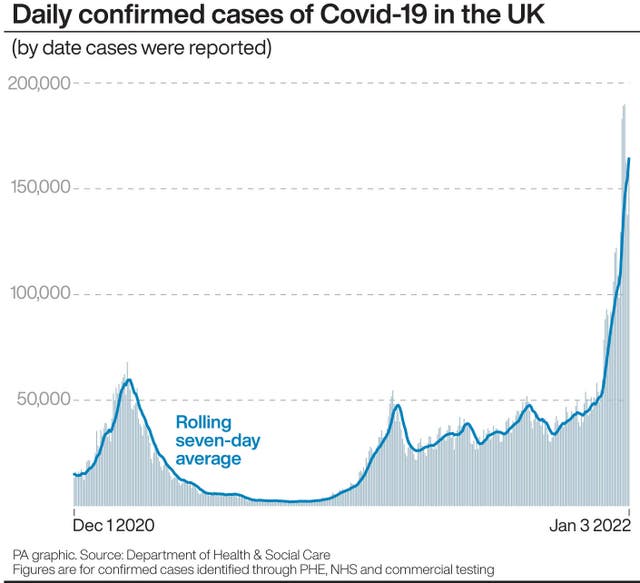Multivariant Covid-19 vaccine booster shows promise, early trial data suggests
According to the data the vaccine was generally safe and well-tolerated.

A Covid vaccine booster aimed at tackling multiple variants shows promise in inducing a comprehensive immune response, early data suggests.
The first results of a phase one trial, launched in Manchester in September 2021, reveal the jab has strong levels of neutralising antibodies.
They are similar to approved mRNA vaccines (like Pfizer/BioNTech and Moderna), but at up to a 10-fold lower dose in the first 10 individuals, the research indicates.

According to the data the vaccine was generally safe and well-tolerated.
The jab is being trialled with the anticipated involvement of 20 people aged 60 and over, who were in good health and previously received two doses of the Oxford/AstraZeneca jab.
The findings are published by US-based biotechnology company Gritstone bio, Inc. in collaboration with the University of Manchester and Manchester University NHS Foundation Trust.
Part of Gritstone’s CORAL programme, the jab is a self-amplifying mRNA second generation SARS-CoV-2 vaccine – or samRNA for short – which targets both spike and non-spike proteins.
The vaccine candidate also produced broad T-cell responses, which form part of the body’s immune response.
While antibodies bind to the body’s foreign invaders and tell the immune system it needs to take action, T-cells are a type of white blood cell which hunts down and destroy infected cells in the body.
Current vaccines target the spike protein of the coronavirus, meaning variants which have mutations to this part of the virus may be able to escape the immune response induced by the jabs.
The researchers tested a single 10 microgram dose of the samRNA vaccine dose administered at least 22 weeks after two doses of the AstraZeneca vaccine.
Data suggests it induced new T-cell responses and demonstrated the potential for variant-proof immunity.
According to the researchers it also induced a boost to pre-existing T-cell responses.
Professor Andrew Ustianowski, honorary clinical chairman at the University of Manchester and chief investigator for the study, said: “It is increasingly apparent that a focus on T-cell immunity is an important way to generate the robust and durable immunity that may prevent future Sars-CoV-2 variants from causing severe disease, hospitalisation, and death.”
He added: “We know the immune response to first generation vaccines can wane, particularly in older people.
“Coupled with the prevalence of emerging variants, there is a clear need for continued vigilance to keep Covid-19 at bay.
“We believe this vaccine, as a booster, will elicit strong, durable, and broad immune responses, which may well be likely to be critical in maintaining protection of this vulnerable elderly population who are particularly at risk of hospitalisation and death.”
Based on the results, which have not yet been peer-reviewed, the trial is being expanded to 120 people.
It is taking place within the National Institute of Health Research Manchester Clinical Research Facility (NIHR Manchester CRF) at Manchester Royal Infirmary, part of Manchester University NHS Foundation Trust (MFT).
Andrew Allen, co-founder, president and chief executive officer of Gritstone, said: “This innovation enables inclusion of a wide array of highly conserved viral epitopes, potentially creating an immune state that may offer more robust clinical protection against current and future Sars-CoV-2 variants and be a first step toward developing a pan-coronavirus vaccine.”





